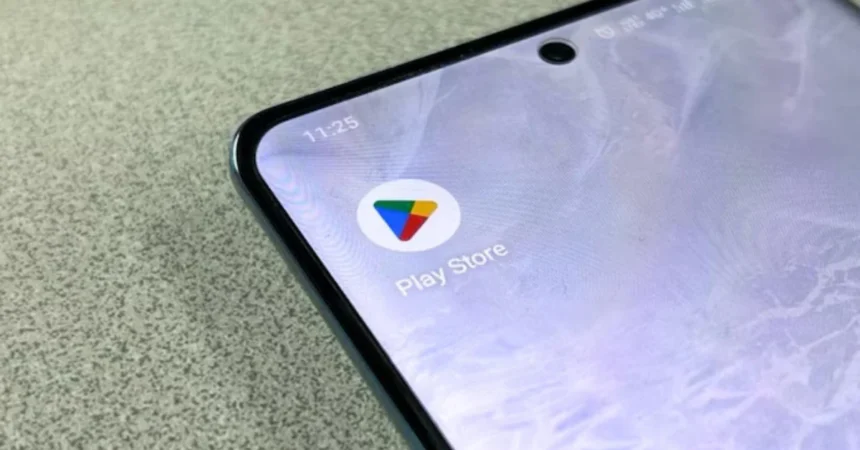In a groundbreaking ruling, a US court has ordered Google to permit rival apps to coexist on its Play Store, shaking up the dynamics of the mobile app marketplace. This landmark decision comes as regulators and governments worldwide continue to scrutinize the monopolistic tendencies of major tech giants. For Google, this ruling is not just a legal setback but a crucial turning point that will likely alter the landscape of app distribution and competition on its platform. The decision has been welcomed by developers and app creators who have long been subject to Google’s stringent control over its digital ecosystem. It also signals broader implications for competition and fairness within the tech industry.
This article explores the implications of this ruling, how it affects app developers and consumers, and what it signals for the future of the mobile app market. The directive to allow rival apps on the Google Play Store marks a shift in the balance of power, potentially setting a precedent for other tech giants like Apple, which similarly maintains strict control over its App Store.
The Background: Google’s Dominance in the App Ecosystem
Google’s Play Store is one of the most influential digital marketplaces in the world. As the primary app distribution platform for Android devices, it commands a near-monopolistic hold over the app ecosystem. This control has allowed Google to impose restrictive policies on developers, charging high fees for transactions, maintaining strict approval guidelines, and limiting alternative app stores from gaining traction.
For years, developers and competitors have criticized Google for leveraging its dominant position to stifle competition and innovation. The argument has been that Google’s control over the Play Store creates a bottleneck, preventing app developers from freely distributing their apps to consumers without having to comply with Google’s often rigid rules. This court ruling seeks to dismantle some of these barriers, paving the way for a more open and competitive app market.
The Court’s Ruling: A Game Changer for App Distribution
The US court’s decision is a clear directive for Google to loosen its grip on app distribution by allowing rival apps to exist on the Play Store. Specifically, the court ruled that Google must permit rival app stores and third-party apps to be listed on its platform without penalizing or limiting their access to users.
This ruling is monumental in several ways. First, it addresses one of the core complaints from developers: the inability to offer their apps on Google’s platform without adhering to the company’s rules, particularly regarding in-app purchases and service fees. The court’s decision now opens the door for developers to distribute their apps with greater freedom, potentially bypassing Google’s transaction systems and avoiding the mandatory commission fees that have been a source of frustration for many.
Second, it shifts the balance of power between Google and its competitors. By allowing rival app stores and services to flourish within the Play Store ecosystem, the ruling forces Google to adopt a more inclusive approach. This can encourage innovation, as new app stores or app distribution models might emerge, challenging Google’s dominance in the mobile marketplace.
Implications for App Developers
For app developers, this ruling is a breath of fresh air. The court’s decision essentially liberates developers from the constraints that have long been imposed by Google. With rival apps and app stores now being allowed on the Play Store, developers will have more flexibility in how they distribute and monetize their apps.
- Freedom from Fees: One of the most significant implications is the potential reduction in transaction fees. Currently, Google charges developers up to 30% for in-app purchases, a practice that has been heavily criticized by both small and large developers. The court ruling paves the way for alternative payment systems that can bypass Google’s transaction fees, thereby increasing profitability for developers.
- New Avenues for Distribution: Rival app stores can now coexist with Google’s Play Store, giving developers more options to reach their audience. This opens up new avenues for app distribution, as developers will no longer be solely reliant on Google’s platform. They can offer their apps through third-party stores or alternative distribution channels, providing more visibility and reducing the barriers to entry for smaller developers.
- Increased Competition and Innovation: With the Play Store becoming more open, competition within the app marketplace is likely to increase. Developers can benefit from this by finding new ways to innovate, differentiate their offerings, and experiment with different business models. The pressure on Google to maintain its market position may also encourage the company to lower its fees, introduce more developer-friendly policies, and enhance its platform to retain its user base.
- User Trust and Security: One of the concerns that developers and consumers alike have is the issue of trust and security. While the court ruling encourages competition, developers will still need to ensure that their apps meet high standards of security and data privacy. With more app stores entering the fray, maintaining user trust will be crucial for success. Developers who can balance innovation with security will be best positioned to thrive in this new, open marketplace.
Implications for Consumers
While this ruling is a significant victory for developers, it also has far-reaching implications for consumers. The court’s decision means that consumers will now have greater choice when it comes to the apps they download and use. This could lead to better prices, enhanced app features, and a more diverse range of apps available on the Play Store.
- More Choices: Consumers will benefit from having more app stores and services available to them within the Google Play Store. They may no longer be restricted to Google-approved apps and can explore a wider variety of options tailored to their needs. This is especially important for niche apps that may not have been able to break through Google’s stringent approval process in the past.
- Lower Prices: The introduction of alternative payment systems within the Play Store could potentially lead to lower prices for consumers. With developers now able to bypass Google’s transaction fees, they may pass on the savings to users, offering more competitive pricing for in-app purchases and premium content. This could encourage a more consumer-friendly pricing model across the board.
- Greater Innovation: Increased competition often leads to greater innovation, and this ruling could spark a wave of new and improved apps. As rival app stores and developers push the boundaries of what’s possible within the app ecosystem, consumers stand to benefit from enhanced app functionality, improved user experiences, and cutting-edge technology.
- Data Privacy and Security: With more options available, consumers will need to be vigilant about the apps they download. While Google’s Play Store has traditionally maintained strict standards for security, the introduction of rival app stores could potentially introduce risks if these alternatives do not adhere to the same level of scrutiny. Consumers may need to be more discerning about the sources of their apps and ensure that they are downloading from reputable and secure platforms.
The Impact on Google’s Business Model
For Google, this ruling presents both a challenge and an opportunity. The company has long relied on its Play Store as a significant revenue stream, earning billions through transaction fees and app-related services. The court’s decision directly threatens this revenue model, forcing Google to reconsider how it monetizes its app platform.
- Revenue Losses: The most immediate impact for Google will be the potential loss of revenue from transaction fees. If developers are no longer required to use Google’s payment system, the company stands to lose a substantial portion of its income. This could lead to a reevaluation of its fee structure or the introduction of new monetization strategies to compensate for the lost revenue.
- Maintaining Market Leadership: With rival app stores now allowed on its platform, Google will face increased competition within its own ecosystem. To maintain its position as the leading app marketplace, Google may need to innovate and improve the Play Store experience for both developers and consumers. This could include introducing more developer-friendly policies, enhancing app discovery algorithms, and offering better revenue-sharing models.
- Potential for Increased Collaboration: While the ruling challenges Google’s control over the Play Store, it also opens up opportunities for collaboration. By embracing a more open ecosystem, Google could foster partnerships with rival app stores and developers, creating a more diverse and vibrant app marketplace. This could lead to new revenue streams, such as advertising partnerships or shared app services.
- Reputation and Public Perception: Google’s response to this ruling will be closely watched by regulators, developers, and the public. The company has faced growing scrutiny over its business practices, and its ability to adapt to this ruling will be a key factor in shaping its reputation. A positive, collaborative approach could enhance Google’s image as a pro-competition and developer-friendly company, while resistance or non-compliance could further fuel antitrust concerns.
The Broader Context: Antitrust Scrutiny of Tech Giants
This ruling is part of a larger trend of increased regulatory scrutiny on tech giants like Google, Apple, Amazon, and Facebook. Governments and regulatory bodies around the world have raised concerns about the monopolistic practices of these companies, particularly in relation to their control over digital ecosystems and marketplaces.
In recent years, both Google and Apple have faced multiple legal challenges over their app store practices, with critics arguing that their policies stifle competition and harm consumers. This ruling may set a precedent for similar cases, potentially leading to more legal actions aimed at curbing the dominance of tech giants in the app marketplace.
The Future of App Distribution
The court’s decision represents a pivotal moment in the evolution of app distribution. As the mobile app ecosystem becomes more open and competitive, the dynamics of the marketplace will continue to shift. Developers will have more opportunities to innovate and reach their audiences, while consumers will benefit from increased choice and lower prices.
For tech giants like Google, the challenge will be to adapt to this new landscape while maintaining their market leadership. The ruling could inspire similar decisions in other jurisdictions, further challenging the dominance of tech companies in the app ecosystem.
Ultimately, this ruling marks a turning point in the ongoing battle for fairness and competition in the digital world, with far-reaching implications for the future of the mobile app marketplace.
#GooglePlayStore #AppMarketplace #USCourtRuling #AppDistribution #TechGiants #Antitrust #DevelopersRights #AppCompetition #DigitalEcosystem #GoogleMonopoly







